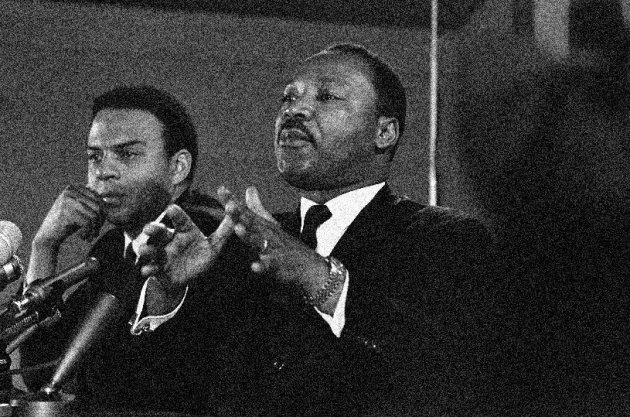NASHVILLE, Tenn. (AP) — Stephon Tull was looking through dusty old boxes in his father's attic in Chattanooga a few months ago when he stumbled onto something startling: an audio reel labeled, "Dr. King interview, Dec. 21, 1960."
He wasn't sure what he had until he borrowed a friend's reel-to-reel player and listened to the recording of his father interviewing Martin Luther King Jr. for a book project that never came to fruition. In clear audio, King discusses the importance of the civil rights movement, his definition of nonviolence and how a recent trip of his to Africa informed his views. Tull said the recording had been in the attic for years, and he wasn't sure who other than his father may have heard it.
"No words can describe. I couldn't believe it," he told The Associated Press this week in a phone interview from his home in Chattanooga. "I found ... a lost part of history."
Many recordings of King are known to exist among hundreds of thousands of documents related to his life that have been catalogued and archived. But one historian said the newly discovered interview is unusual because there's little audio of King discussing his activities in Africa, while two of King's contemporaries said it's exciting to hear a little-known recording of their friend for the first time.
Tull plans to offer the recording at a private sale arranged by a New York broker and collector later this month.
Tull said his father, an insurance salesman, had planned to write a book about the racism he encountered growing up in Chattanooga and later as an adult. He said his dad interviewed King when he visited the city, but never completed the book and just stored the recording with some other interviews he had done. Tull's father is now in his early 80s and under hospice care.
During part of the interview, King defines nonviolence and justifies its practice.
"I would ... say that it is a method which seeks to secure a moral end through moral means," he said. "And it grows out of the whole concept of love, because if one is truly nonviolent that person has a loving spirit, he refuses to inflict injury upon the opponent because he loves the opponent."
The interview was made four years before the Civil Rights Act became law, three years before King's famous "I Have a Dream" speech, and eight years before his assassination. At one point in the interview, King predicts the impact of the civil rights movement.
"I am convinced that when the history books are written in future years, historians will have to record this movement as one of the greatest epics of our heritage," he said. More
